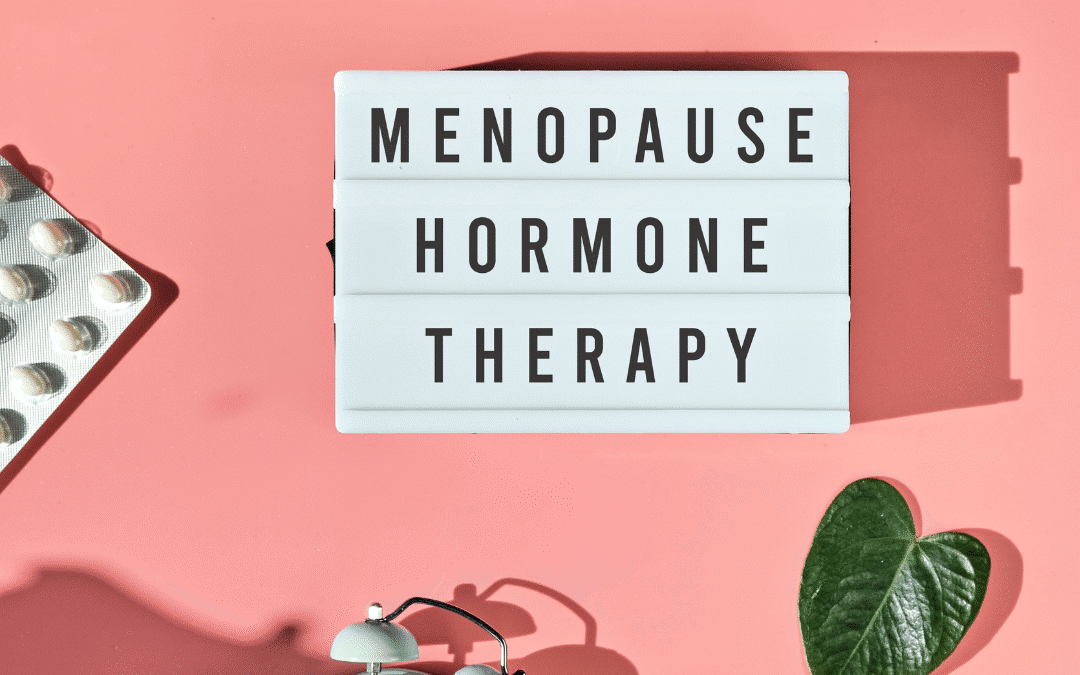For more than two decades, doctors practiced assuming hormone replacement therapy (HRT) was unsafe. We were told it could cause breast cancer, heart attacks, or strokes.
The misinformation persists still today; internet forums are full of daily posts from women whose doctors refuse to treat them.
Now, the FDA has dramatically reversed course, removing the black box warning from 20 hormone therapy products. The so-called “risks” of HRT were based on outdated interpretations of the 2002 Women’s Health Initiative study that used synthetic hormones in older women far past menopause.
New research shows that HRT benefits far outweigh what are now known to be significantly smaller risks.
What we now know about HRT for women
Newer analysis shows that:
- Heart protection: Starting hormone therapy before age 60 or within 10 years of menopause onset is associated with a 30–50 percent reduction in cardiovascular disease and mortality.
- Breast cancer fears exaggerated: Estrogen-only therapy (for women who’ve had a hysterectomy) is linked to lower breast cancer incidence.
- Stroke and clot risks are small and formulation-dependent: These risks were largely associated with the older oral synthetic estrogen and progestin formulations used in early studies.
- Brain protection: HRT may reduce the risk of Alzheimer’s by 35 percent and improves mood.
- Bone protection: HRT prevents and even reverses bone loss, reducing the risk of fractures by 50–60 percent.
- Bioidentical and transdermal forms are better tolerated: Bioidentical forms of HRT, which means they are identical to the forms produced by the body, are now known to be safe and effective.
- Even late starters can benefit safely: Decades of practitioner experience show that women who initiate HRT well after menopause can still gain meaningful improvements in bone density, sleep, mood, cognition, and overall vitality.
Male HRT has been long accepted while women went neglected
Men have been routinely tested for low testosterone, prescribed FDA-approved testosterone therapy options, and reimbursed by insurance, all supported by decades of research and mainstream acceptance.
But testosterone is also vital for women’s energy, bone density, cognition, mood, and emotional resilience, musculoskeletal integrity, mental health, and motivation.
Yet women with low testosterone in menopause are often denied testosterone replacement therapy. There are no FDA-approved testosterone therapies for women in the United States, even though clinical studies and extensive practitioner experience show clear benefits for energy, mood, bone, and sexual health.
It’s not just about hot flashes—HRT may prevent suicide in women
The risk of suicidal thoughts and behaviors rises sharply during peri/menopause, thanks to hormonal volatility, depression, anxiety, mood instability, and persistent and sometimes extreme insomnia.
A 2024 review found that midlife women in the menopausal transition report significantly higher rates of suicidal ideation compared to pre-menopausal women. Another large cohort study linked early menopause (before 40) with greater suicide mortality risk.
The conundrum with HRT treatment
While awareness about women’s HRT is rising, countless women are still dealing with doctors (conventional and alternative) who refuse to treat them, refuse to give them sufficient doses, are grossly misinformed about HRT, or stigmatize its use.
As with Hashimoto’s, autoimmunity, and other facets of healthcare, HRT is one of those areas in which women must become self-educated to seek out knowledgeable providers.
Thankfully we now have a large variety of telehealth clinics offering HRT, but be wary of “pill mill” type operations that are also poorly informed and just want to upsell you on expensive products. By educating yourself, you can become discerning when seeking care.
There are great “bio-identical HRT” Facebook groups and other online groups where women help one another learn, but there too you must be wary of bias and misinformation.
Adding to the complexity, HRT is an area of profound bioindividuality. What works for one woman might not work for another in terms of the type of HRT or dosing, so be wary of one-size-fits-all protocols.
The ideal practitioner understands the new information, is woman-centered, and is experienced enough to know that each patient needs a unique approach. While labs are useful benchmarks, symptoms are important and should not go ignored.
When done right, HRT can help with:
- Better sleep
- Relief from hot flashes
- Clearer thinking
- Reduction or relief from depression and anxiety
- Stronger bones and muscles
- More energy
- Restored sexual function and comfort
- Lowered disease risk
A few great places to begin learning more include Peter Attia’s interview with the authors of Estrogen Matters, his recent podcast with Dr. Rachel Rubin, and following Dr. Mary Claire Haver and Dr. Louise Newson on social media.
You can also schedule an appointment with Heather Harper, NP at our PalmaVita Clinic to discuss your HRT options.

